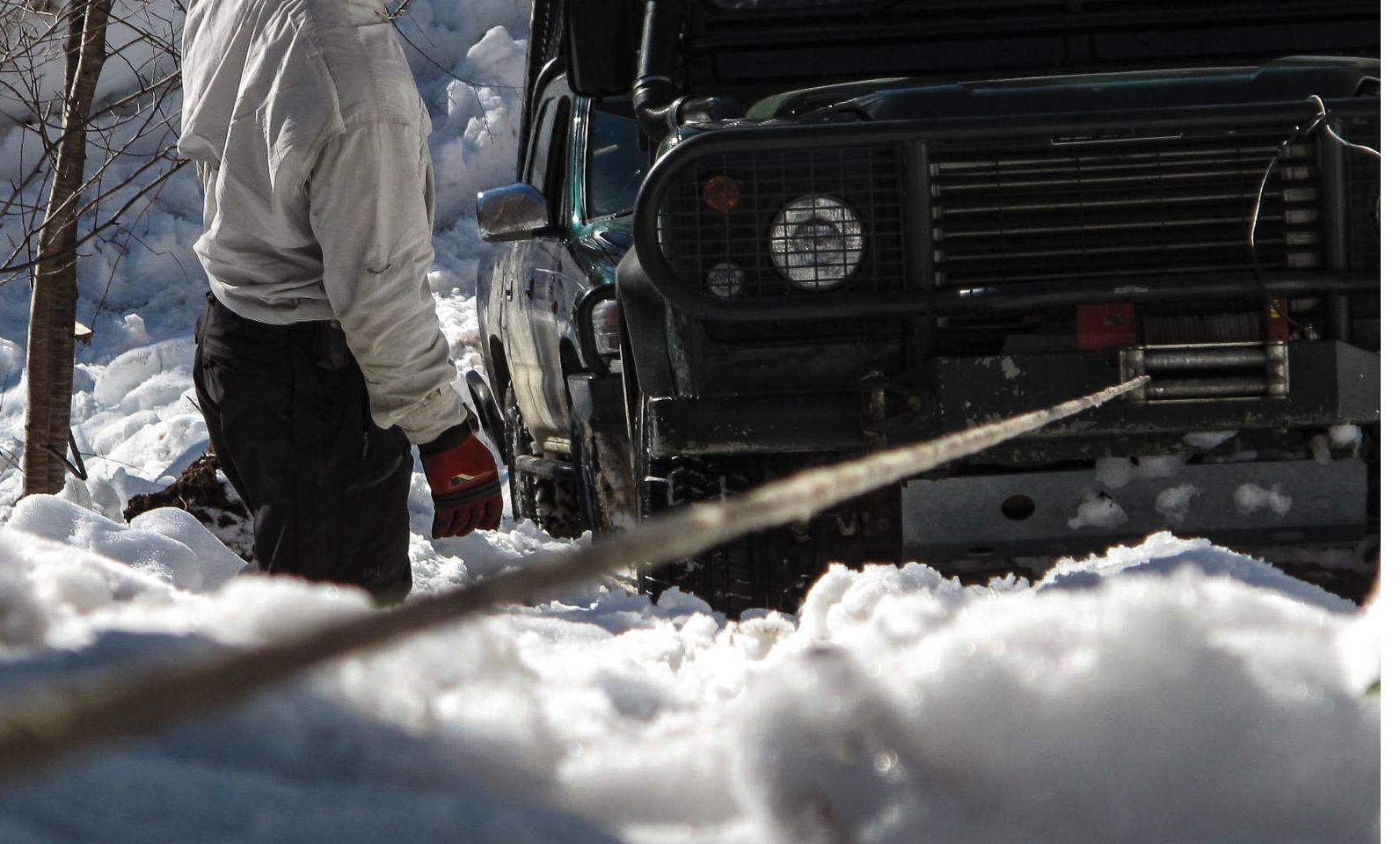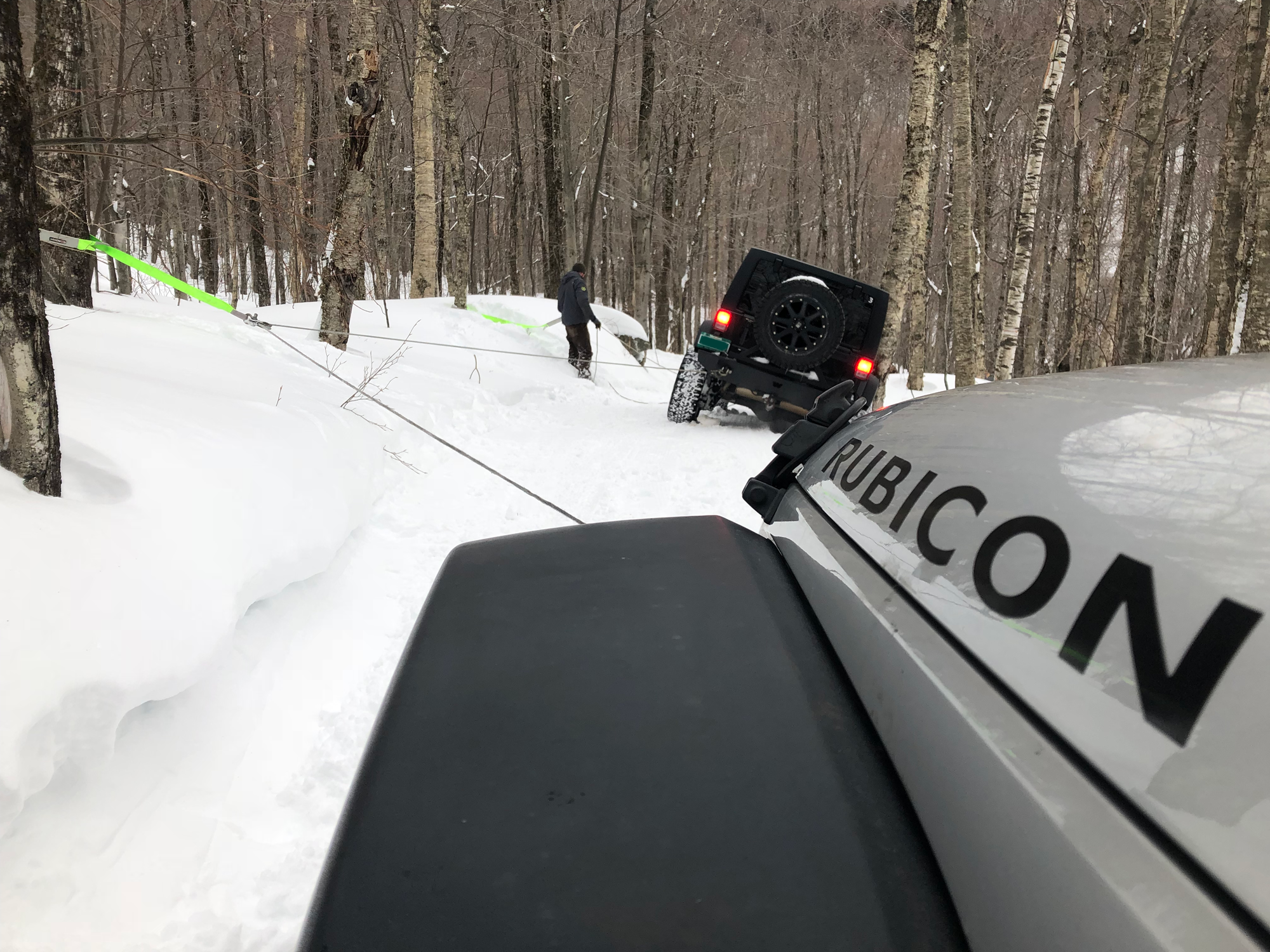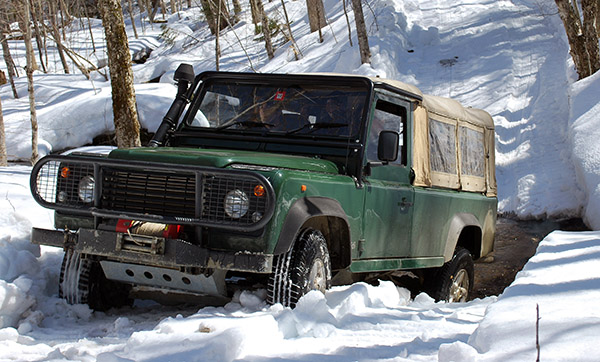
The climate in Vermont from December through March offers some unique challenges for 4×4 operation in severe winter conditions, similar to other mountainous terrain around the world. The Army Mountain Warfare School located on the other side of the mountain trains soldiers in the specialized skills required for operating in mountainous terrain. We train drivers to learn about cold weather vehicle preparation, and how to perform routine and emergency maneuvers while driving on ice and snow.
This course can be abbreviated to fit a 1-2 day curriculum or, used as an immersive five day winter course. Upon the completion of the course, the following skills will be understood & developed.
These courses start with a classroom session, including a power point presentation and course manual (which students keep). Once participants share a common understanding of several, basic safety and driving principles, the class is ready to commence driving. The typical training day runs from 08:00-16:00.
Training is performed in vehicles that represent a broad spectrum of what is most likely to be encountered around the globe. The training in these vehicles has been proven to provide an excellent foundation for driving most military vehicles including Humvee's. The vehicles are very close to stock configuration with accessories only added in a manner that they can either be used or not. The theory is, if you can make a stock vehicle pass difficult terrain then you have a foundation of skills for any vehicle. If you learn in modified vehicles you will not have the foundation or experience to drive stock vehicles in challenging conditions. This way, participants can see the advantages of a particular accessory, while also learning to drive without them.
Instructors are present with the vehicles at all times to ensure that maximum learning is always achieved, prompt remediation is available, and any opportunity for demonstration or explanation is exploited. The driving takes place primarily on private land totaling about 1,200 acres where there is a combination of natural and manmade trails & obstacles. Logging & class four roads are also used totaling about 18 miles. If it is believed an obstacle is necessary to develop a skill or prove a point it is built. The terrain is mountainous & offers a variety of different winter conditions.
When the terrain is as gnarly as ours, from time to time mechanical issues may arise or, they may be created as a learning opportunity. These are dealt with in a manner that demonstrate to participants, field mechanics and improvisation. When these opportunities occur, a combination of complete vehicles & display components are taken apart and reassembled to give hands on experience as to how common failures can be repaired.
A wide variety of recovery gear is carried & used, so that in real situations the participants use everything from the most basic to the most comprehensive gear.
During the course there is an ongoing discussion & explanation of the following field repair procedures:
The 4x4 Center maintains a dedicated winter training facility located in Vermont, 25 miles from our facility in South Burlington, Vermont. At this facility we have man made trails that are regularly groomed to ensure proper conditions for training. Winter weather is unpredictable and without a dedicated staff and equipment, proper training cannot be conducted during the winter. If training areas are not prepared and scouted, participants can be faced with too much snow or too little, preventing a successful training. The 4x4 Center does all its own snow preparation with a fleet of machines including snow making, snow cats, track truck, tractors, snowmobiles, and snow blowers. This enables us to react to undesirable winter warming conditions, or heavy snow conditions, ensuring a consistent training surface is available for each class.
Our ability to change the depth & consistency of snow for different training purposes is very important to the skills you are learning. Temperature changes can also affect the traction snow provides as vehicles travel over it. This expertise in winter environments has enabled The 4x4 Center to host Winter Tire Experience training for Michelin Tire Corporation. In addition to our private site we have a long standing relationship with the Ethan Allen Firing Range, which allows us prepare trails at the facility for training, and establish an excellent venue for our military customers. In addition to snow, ice areas are also prepared to allow hands on recovery practice.

